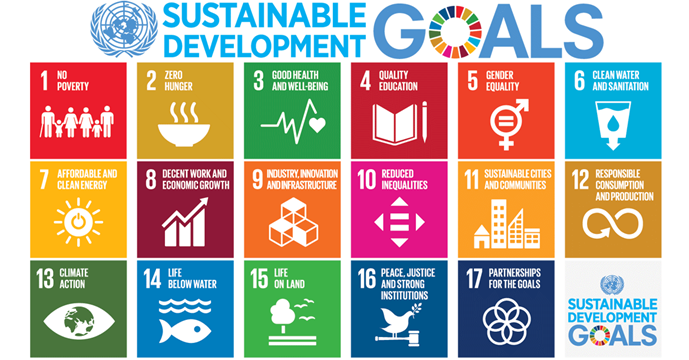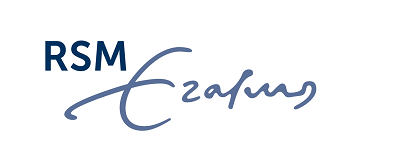- CSR
Embedding UN SDGs Into Business Practice
With many of the ‘Why?’ arguments behind alignment with the UN’s SDGs hard-won, Rotterdam School of Management’s Eva Rood moves on to consider the more complex ‘How?’
In its truest sense, the challenge of building back better is to cultivate long-term socially and environmentally sustainable economies. It is, in many ways, a vast challenge and one that’s complexity and difficulty is belied by that bitesize, alliterative political slogan.
Fortunately, in the 17 UN Stainable Development Goals (SDGs) we have a universally recognised blueprint to work from, and one that individual businesses the world over can aim to align their strategy and operations with.
While the SDGs―from alleviating poverty to reversing climate change―were adopted by all UN Member States in 2015, it has long been clear that the era when business leaders could make decisions based purely on financial targets has passed. A pioneer among the world’s leading business schools, Rotterdam School of Management, Erasmus University, (RSM) has been focused on the role of business in creating sustainability for over 20 years and particularly since Dean Steef van de Velde established its ‘Business as a Force for Positive Change’ initiative 5 years ago.

The response of business to the Covid pandemic―in adopting new ways of working, in innovating and collaborating to deliver vaccines and other resources at unprecedented speed―bodes well in demonstrating how it can accept radical change. On this point Eva Rood, Director of RSM’s Positive Change initiative and Managing Director of the Centre for Eco-Transformation, is hopeful but wonders, “if we have really made transformative changes, systemic changes.”
“I see companies looking at this sustainability model with great interest,” Rood continues. “But also struggling with how to tell their shareholders they want to interpret returns on investment in a different, broader way than by financial return only. Struggling with how to calculate and show the value that a sustainable model can bring to society, or the value it can bring to nature.”
Finding answers to these dilemmas is where RSM and Rood herself want to focus their contribution over the next 10 years. “I would like to have designed a whole portfolio of education and research, hosted by the business school―but in close collaboration with environmental sciences―that tries to figure this out. Not only thinking about sustainable business models, but how we can make them ‘the new normal’.”
A fundamental prerequisite of moving towards sustainable business practice, suggests Rood, is to “interpret responsibility in a new way. My colleague Rob van Tulder made this overview that I really love where he sketches four phases of how companies can be corporately responsible. In phase one you are responsible for your own operations. You run your business in an ethical way, and that's it―with that approach comes risk avoidance.” By the fourth, transformative, phase the company is learning to be a part of the society and environment it is located in. So that in partnership with other society stakeholders it can “figure out how to make a positive impact.”
As far as what the Executive Education sector can and should be doing to encourage strong leadership and creative strategies in this area, Rood quotes the work she is doing through RSM’s ENABLE project (co-funded by the Erasmus+ programme of the European Union)―around business model innovation for the recovery of degraded landscapes. (There is an echo here from the Dutch history of creating viable land.) “We see it as important to remind managers that there is this world behind their Excel spreadsheets, of living things that operate in systems. To bring ecology back into the minds of business thinkers, so they have the wisdom themselves to make different choices.”
Rood refers to the recent independent review on the Economics of Biodiversity led by Professor Sir Partha Dasgupta: “It closes with a paragraph on education which says, that when we educate our kids they are completely aware of nature and their role in it. Then, somehow, in their mid-teens the realisation drops away.” This, she says, resonates with her own experience with MSc and MBA students at RSM. “When we talk with them about the importance of soil, at first they think we've become insane. Then there is this moment when they realise that, no, they are part of nature. And even if they've grown up in a city, their urbanised environment depends completely on healthy ecosystems. Being able to open up their worldview like this is really rewarding.”
In recent years the business community has increasingly focused on environmental issues and also on gender equality. But can it be expected to concern itself with the full set of UN goals? Or are there specific targets businesses should aim at? The belief at RSM is that the SDGs should be treated as a set rather than cherry picked. “All 17 are relevant,” claims Rood. “Ending hunger or ending poverty is directly related with paying people a living wage instead of a minimum wage. ‘Life on Land’ is directly related to how you treat your natural resources. Do you harvest them in a sustainable way or in a short-term way? Are you doing monocultures or taking care of biodiversity?” Even Goal 14: ‘Life Below Water’ is connected. “The oceans are regulating the global temperature, so you can’t say that life below water is not important,” Rood argues.
She gives another example of interconnectedness to confirm the point. In order to end hunger, you might calculate that monocultures are the way to feed the world―but this would ignore the fact that biodiversity is also key, to keep ecosystems in balance and the world functioning as it should. “It shows how extremely complicated these grand challenges are. There are no quick fixes. The only way you can try to contribute something is in partnerships and it may involve some clumsy solutions. It means figuring out the correct balance between monocultures and biodiversity that will feed as many people as we can while keeping ecosystems in balance. There are always trade-offs.”
RSM launched an academic department in Business and Society Management over 20 years ago, with a group of forward-thinking academics that helped spark the discussion about the role of business in society. “Our mission now, through the Positive Change initiative and also with the Centre for Eco-Transformation, is not to build our own kingdom, it is to mainstream this new way of thinking.” The aim is to embed sustainable business model thinking across all departments at RSM and with all the school’s faculty. “Ideally we shouldn't have a Sustainability Department in five years’ time,” says Rood, “because this way of thinking as we present it to students and clients will not be as an add-on, but the core of our teaching. That's the path I want to take at RSM.”
SDG Related Resources from RSM
- Positive Change publication series. Currently there are 4 expert publications available for free download: https://www.rsm.nl/positive-change/book-series/
- SDG video series. 77 videos for everyone to watch, showing examples of how management knowledge can contribute to the SDGs and how organisations that have adopted the SDGs into their core strategy bring lasting positive change: https://www.rsm.nl/sdgs/
- An award winning free to access MOOC, ‘Driving business towards the Sustainable Development Goals’: https://www.rsm.nl/programmes/moocs/driving-business-towards-the-sdgs/
- Two free to access MOOCs from the ENABLE land degradation project: https://www.rsm.nl/enable/our-moocs/
- Teaching Case Series. To be launched shortly. 17 cases each relating to one of the SDGs and a business question. These cases can be used in every business school around the world. This is an example case: https://www.rsm.nl/cdc/case-catalogue/detail/57-sustainable-eosta-leading-organic-trade-by-valuing-people-and-environment
................................................................................................................................

One of Europe’s leading business schools, and ranked among the top three for research, RSM provides ground-breaking research and education furthering excellence in all aspects of management.
ARTICLES YOU MIGHT LIKE
BOOK REVIEW
A practical guide to sustainable corporate sourcing and running a scandal-free supply chain
DEVELOPING LEADERS QUARTERLY MAGAZINE AND WEEKLY BRIEFING EMAILS

































